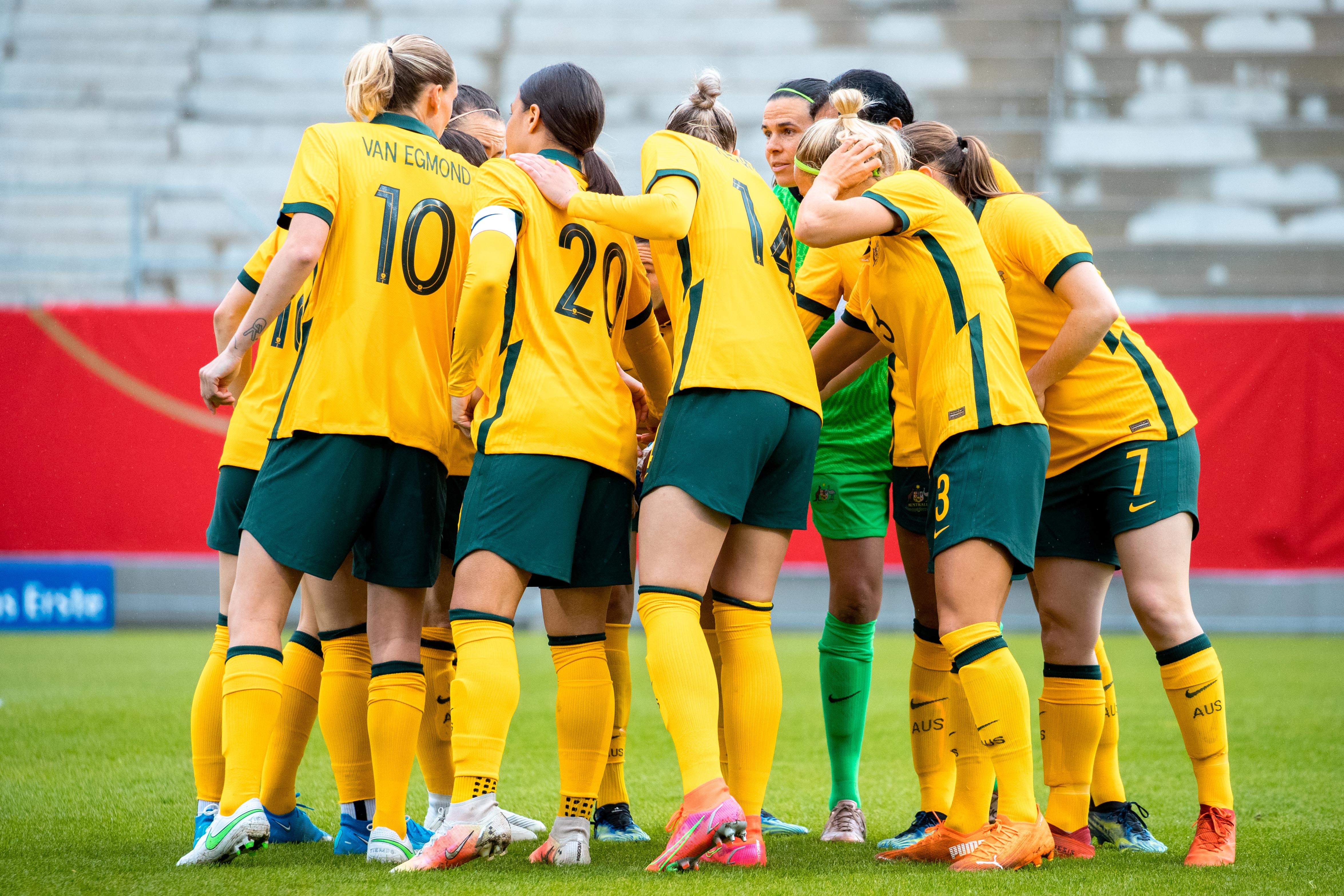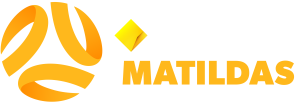Earlier this month, after a year-long absence, the Westfield Matildas returned to the international fold.
Such a lengthy break meant the two friendlies against Germany and the Netherlands provided some much-needed game time as well as the opportunity to assess where the team – and international women’s football – were placed.

“I think it was a great opportunity for us to take and to find out where we're at, but more importantly, the lessons and the takeaways that we need to plan for and prepare for in order for us to get to where we want to be,” said Westfield Matildas assistant coach Mel Andreatta.
“We definitely have a clearer picture about the steps we need to take and the areas that we need to keep getting better at in order for us to be one day better, and be world's best.”
That picture includes improvement from both a physical, match tempo perspective, and arguably most importantly the football IQ side of the game. In his first interviews as the new head coach, Tony Gustavsson expressed how one of the strengths he could bring to the team was a improve game management – particularly as the women’s game continues to improve at a rapid pace.
“What we found out is that, even in the time since the 2019 FIFA Women’s World Cup, the game has continued to improve and the speed of the game in particular has continued to increase.”
I think when we look at the experience that we had, we can all say if we are really honest with ourselves, and when we look at those performances, that we need to match the speed of the game, match the speed of each moment, both as individuals and as a team.”
“I'm not just talking about physical factors here either. I'm talking about our ability to read the play, anticipate the play, make quicker decisions, technically be able to dominate the space that we're in which is far smaller.
It is fantastic how women’s football is progressing but it means that we have less time to control the ball and manage the space between us and an opponent with the ball. We've got to do it quicker. We've got to be more proactive.”

It’s a sentiment which was echoed by Westfield Matildas head coach Tony Gustavsson in his post-camp press conference.
“We need to play these tough games, we need to get exposure with these players against the top nations. And as you probably have seen, everything at this level is faster, you get less time on the ball so there has been a lot of technical mistakes.” Gustavsson said.
“Same thing with defending, if you're too slow in your decision making or not there, they punish you. And we need to get those learnings and experience to know where we're at.
We know where we want to be but then we need to identify where are we at right now and how can we make improvements from now until tournament start to do better than we have done in these two games.”
In the short term, focus turns to the Tokyo 2020 Olympic Games and the process in the lead up to that tournament.
April’s camp provided the information necessary to create the plans needed to tackle the Olympics and the Westfield Matildas’ Group G opponents.

A concurrent aim is to continue growing the player pool and exposing as many players as possible to high performance environment through Women’s Talent Identification camps.
After the success of the November 2020 camp, Andreatta implored players to take the opportunities provided by the next camp with both hands.
“A Women's Talent ID Camp is beneficial on two fronts; firstly, it can support our preparations for Tokyo as we look to find players that are ready to assist the Westfield Matildas put in strong performances at the Olympics.
“Secondly, and just as important, it is an opportunity to identify those players who have qualities that can enrich the team in the long run as we keep one eye on 2023.
The November [Women’s Talent ID] Camp was so important because it gave more opportunities for players to come together, best with best, to train at a higher level, to play internal games, and to really measure themselves against the standards and the benchmarks that we know lead towards performances that are competitive, and winning performances at the international level.”
The need for a broad base to strengthen the national team is vital for building a platform for future success.
With an enhanced scouting network, players are continually being assessed whether here in Australia through Elite Matches for the Westfield Young Matildas, Westfield Junior Matildas and Future Matildas or internationally in Europe and the United States.
READ: Kerr nominated for Women's Super League Player of the Season
WATCH: Matildas Milestones – Beattie Goad (Cap 206)
LEARN: Westfield Matildas learn Tokyo 2020 Olympic Games opponents
WATCH: NEDvAUS: Gustavsson post-match interview presented by Seven Consulting
Providing more opportunities like the Women’s Talent ID camps for a variety of players – young and veteran, those familiar with the national team set up and those who enjoyed breakout Westfield W-League seasons – is key.
“If we want to broaden this roster and the depth of the roster, we need to expose more players to this environment,” said Gustavsson at his post-camp press conference.
“At the next level when you play world class teams, we need to get better [in all aspects] in order to deal with these teams moving forward.”

For Andreatta, all of the proactive initiatives will ultimately position Australia more suitably to undertake world’s best practices regarding development and growing the player pool.
“From the Performance Gap report we know that more match minutes and high-quality minutes is required for all our players,” Andretta explained.
“While some of our Matildas are already experiencing that and getting that week in, week out in the top leagues of Europe, we need to further look at ways of providing that opportunity to players that aren't quite there yet. How do we create this environment that is the best launch pad in the world for them to get there?”
With four major tournaments in four years, the potential benefits of getting this platform right could be a significant for the game beyond the Tokyo 2020 Olympics and the FIFA Women’s World Cup in 2023.
